Accused of stealing a backpack when he was 16, Kalief Browder was imprisoned at Rikers Island prison for three years without a trial.
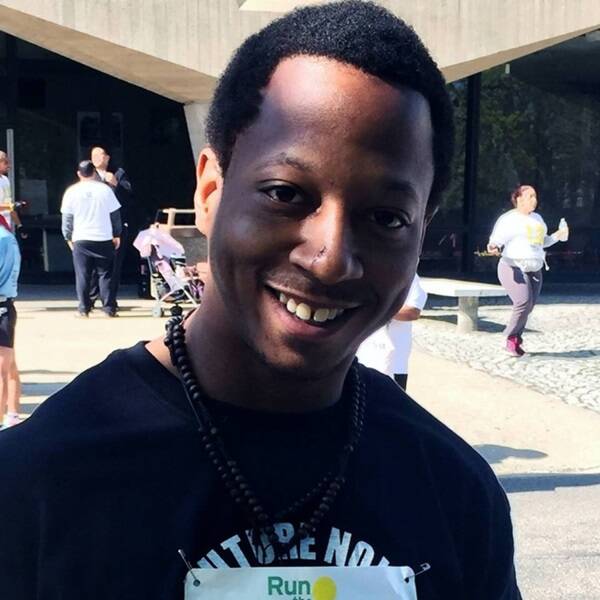
X (Formerly Twitter)Kalief Browder faced abuse from prison guards and inmates at Rikers Island.
On May 15, 2010, 16-year-old Kalief Browder was arrested in the Bronx, New York for allegedly stealing a backpack. Police couldn’t find the backpack or any of its contents on Kalief, and the teen insisted that he was innocent, but he was still charged with robbery, grand larceny, and assault.
Unable to pay the $3,000 bail, Kalief was sent to the notorious Rikers Island prison complex to await trial. What should have been a brief stay turned into a three-year nightmare — which eventually led to Kalief’s suicide.
This is the tragic story of Kalief Browder and his untimely death.
Kalief Browder’s Sudden Arrest In The Bronx
In the early hours of May 15, 2010, Kalief Browder and a friend were heading home on Arthur Avenue after a night out. While they were walking, the police stopped them, searched them, and arrested them on suspicion of theft.
The officers were responding to a call about a stolen backpack that supposedly contained a camera, $700, a credit card, and an iPod Touch. A Mexican immigrant named Roberto Bautista had reported that two teens were behind the theft and claimed that Kalief was the robber.
Kalief told the police, “I didn’t rob anybody. You can check my pockets.” The authorities didn’t find any of the missing items on Kalief, but they arrested him anyway, claiming that he still matched the description of the suspect. Kalief’s friend was also arrested, but he was released shortly thereafter.
Meanwhile, Bautista’s story kept changing. He first implied that the robbery occurred the same night he called 911, then later stated it happened two weeks earlier. The police report indicated that the robbery took place “on or about May 2,” but Bautista eventually said it occurred on May 8th.
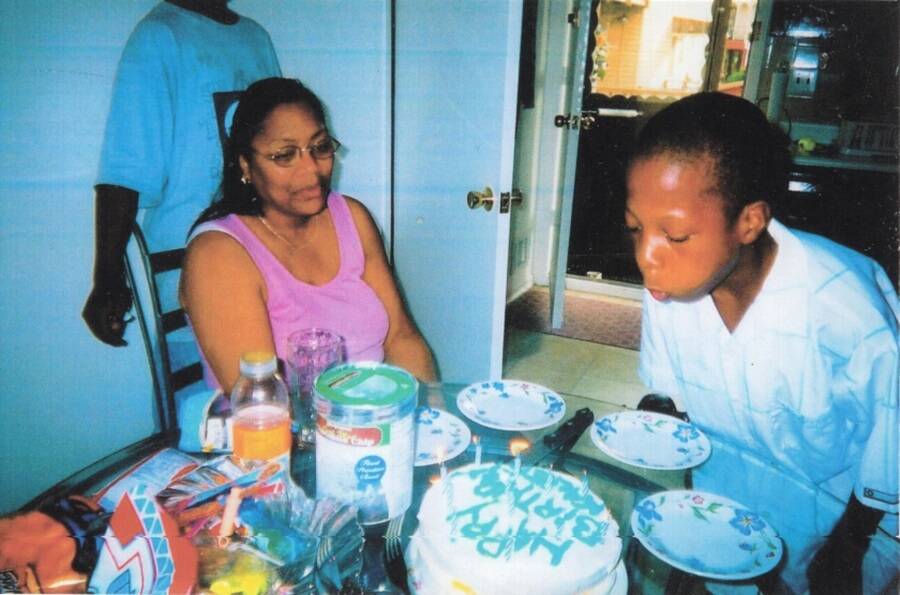
X (Formerly Twitter)Kalief Browder was raised by his adoptive mother, Venida Browder.
Kalief Browder, who was born on May 25, 1993, had grown up in the Bronx, the youngest of seven siblings. Because of his mother’s battle with drug addiction, he was placed under the care of Child Protective Services. His adoptive mother, Venida Browder, eventually took him in, opening her heart and home to a total of 34 children over the years.
Despite his tough start, Kalief was a bright, friendly kid with big dreams. He did have a run-in with the law eight months before the arrest, when he was charged with grand larceny after allegedly taking a delivery truck for a joyride and crashing into a parked vehicle. Kalief claimed it was a friend who drove the truck, but pleaded guilty anyway and was placed on probation.
But in May 2010, his life changed forever.
A Nightmare On Rikers Island
The new charges against Kalief Browder were serious, but the evidence was flimsy. He hoped to be released soon, like his friend had been. But the authorities set a $3,000 bail, which he and his family were unable to pay.
Kalief was then sent to Rikers Island to await trial, but what was supposed to be a temporary stay turned into a nightmare that lasted more than 1,000 days. Shockingly, for about two years of his three-year stay, Kalief was kept in solitary confinement, locked in a cell for 23 hours a day.
He was left alone with his thoughts — thoughts that grew darker with each passing day. He missed his 17th birthday, his 18th, and his 19th, and spent much of those years trapped in a tiny cell. The loneliness was unbearable, and the conditions were brutal. The relentless abuse he’d endured from correction officers and other inmates, coupled with the months of isolation, pushed Kalief to the brink, leading him to attempt suicide multiple times.
On one occasion, in February 2012, Kalief ripped up bedsheets and tried to use them to hang himself from a ceiling light in his cell. On another occasion, he used a sharp object that he made from a bucket in his cell to start cutting his wrists, but an officer stopped him in time.
Kalief later shared with The Huffington Post that the guards would “starve” him as a form of punishment for his repeated suicide attempts.
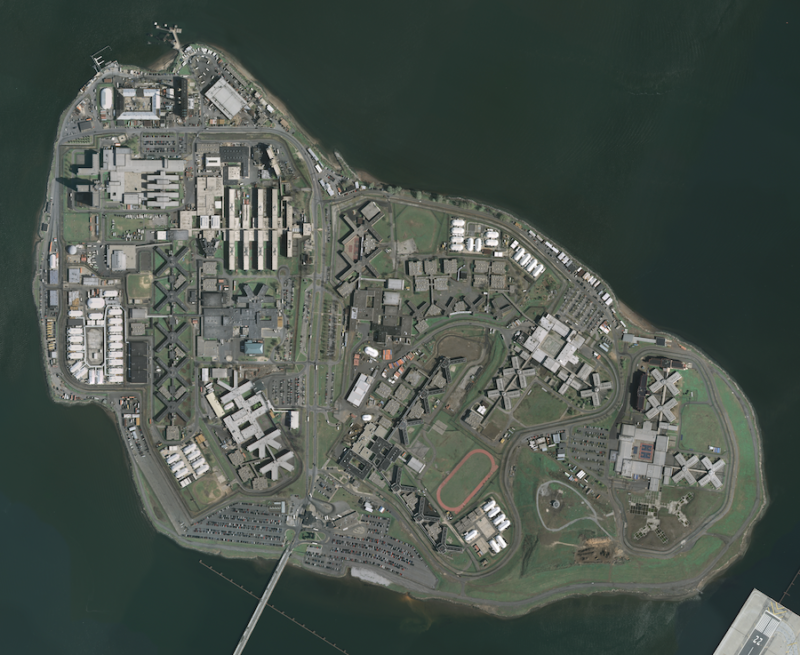
U.S. Geological Survey/Wikimedia CommonsRikers Island holds one of the most notorious prisons in New York.
Rikers Island has long been infamous for its harsh conditions, but what Kalief endured there was beyond anything he could have imagined. Attacked by both guards and fellow inmates, he was often forced to fight just to survive. Video footage from inside the jail later showed a disturbing reality: guards throwing Kalief to the ground and forcing his head down while he lay helpless on the floor. And this was just one of many brutal incidents.
Kalief Browder was offered numerous plea deals while at Rikers, including one that would offer him the chance for immediate release if he admitted guilt. But Kalief said he refused every single time. He was determined to prove his innocence, convinced that the truth would eventually set him free.
However, his case kept getting delayed. Court dates were set and then postponed, and various excuses were given. To Kalief, it felt like the system just wanted to forget about him. But eventually, the prosecutors realized they had no case, especially since Bautista had returned to Mexico. They dropped the charges, and Kalief was finally released in June 2013.
But even though the system let him go, the damage was already done.
Kalief Browder’s Troubled Life After Rikers
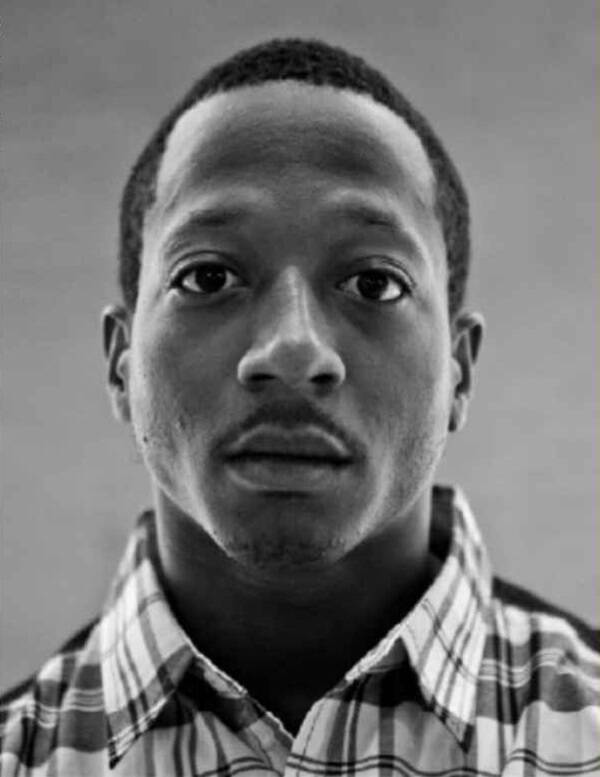
X (Formerly Twitter)Kalief Browder suffered greatly from the abuse and isolation he experienced at Rikers.
Once he was finally a free man, Kalief Browder tried to rebuild his life.
He passed his GED exam and enrolled at Bronx Community College, where he earned a 3.562 GPA during the fall semester. On the surface, it seemed like Kalief was on the right track, but he struggled with depression and anxiety, often sparked by the memories of the abuse he had suffered.
In November 2013, Kalief attempted suicide again and was admitted to the psychiatric ward at St. Barnabas Hospital. He would be hospitalized at least two more times after that, but these hospital stays couldn’t heal his trauma.
Kalief opened up about his struggles in an interview with The New Yorker. “It’s been a year now, and I got a part-time job, and I got my G.E.D.,” he said. “But, when you think about it, that’s nothing. People tell me because I have this case against the city I’m all right. But I’m not all right. I’m messed up. I know that I might see some money from this case, but that’s not going to help me mentally. I’m mentally scarred right now. That’s how I feel. Because there are certain things that changed about me and they might not go back.”
On June 6, 2015, just two years after his release from Rikers, Kalief Browder took his own life. In his mother’s home in the Bronx, Kalief hanged himself with a cord made out of bedsheets. He was only 22 years old.
National Outrage After Kalief Browder’s Death
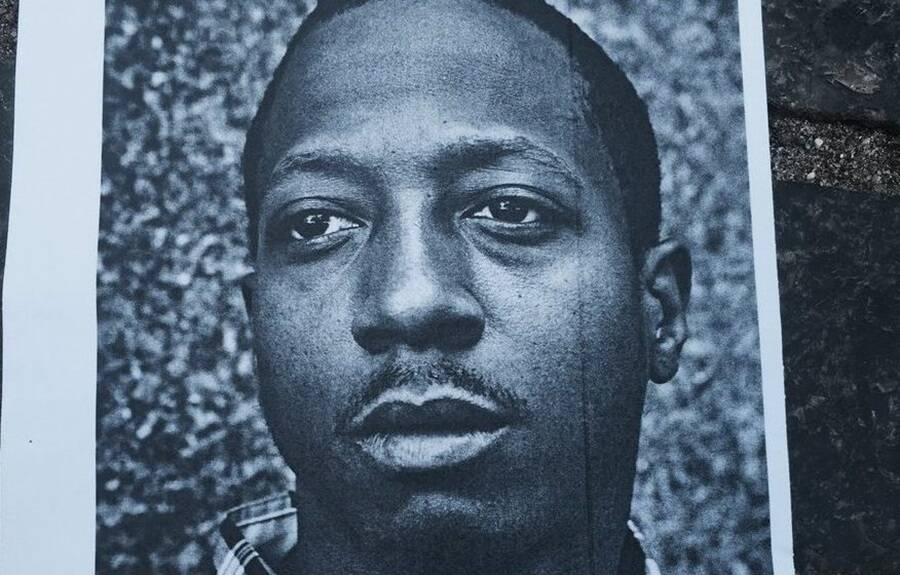
Innocence ProjectThough Kalief Browder’s story ended in tragedy, it also led to important policy changes.
Kalief Browder’s death was devastating for his family, especially his mother, Venida. She had fought tirelessly for her son, standing by him through his ordeal and continuing to seek justice after his release. Venida also became a vocal advocate for criminal justice reform, sharing Kalief’s story with the world in the hopes that no other family would have to endure the same pain.
But the loss of her son was too much for her to bear. Venida passed away in October 2016 after suffering a heart attack, which her lawyer described as the result of a broken heart following Kalief’s suicide.
However, Kalief’s story did not end with his death. It sparked a national conversation about the flaws in the U.S. criminal justice system, particularly the use of solitary confinement for underage youths like Kalief. His case became a symbol of the urgent need for prison reform, drawing attention to the inhumane conditions at Rikers Island and the broader systemic issues that led to his wrongful incarceration in the first place.

NetflixIn 2017, Netflix released the documentary miniseries Time: The Kalief Browder Story about the teen’s tragic ordeal.
In 2017, the rapper Jay-Z, moved by Kalief Browder’s story, helped produce a six-part documentary titled Time: The Kalief Browder Story. The Netflix series helped bring Kalief’s story to a wider audience, ensuring that his suffering would not be forgotten and his death would not be in vain.
Indeed, Kalief’s story led to significant policy changes. Former New York City Mayor Bill de Blasio put an end to the use of solitary confinement for 16-year-olds and 17-year-olds behind bars. De Blasio later announced plans to close Rikers Island altogether, in part due to how much Kalief had suffered there. And in 2016, then-U.S. President Barack Obama announced a ban on the practice of holding juveniles in solitary confinement in federal prisons.
Jay-Z said, “I knew right there that [Kalief] was a prophet. Some of our prophets go with tragedy, Martin Luther King, it ends tragically. But what comes from it, the life, the next iteration, the lives saved, and how this young man has moved culture forward is incredible.”
In January 2019, New York City reached a $3.3 million settlement with the Browder family in a civil suit. While the family said they were satisfied with the settlement, they hoped the case wouldn’t be forgotten. Indeed, the story has continued to inspire advocates to push for even more changes in the system, both in New York City and across the country as a whole.
After reading about Kalief Browder, learn about the wrongful conviction of the Central Park Five. Then, go inside the world’s most terrifying prisons.





